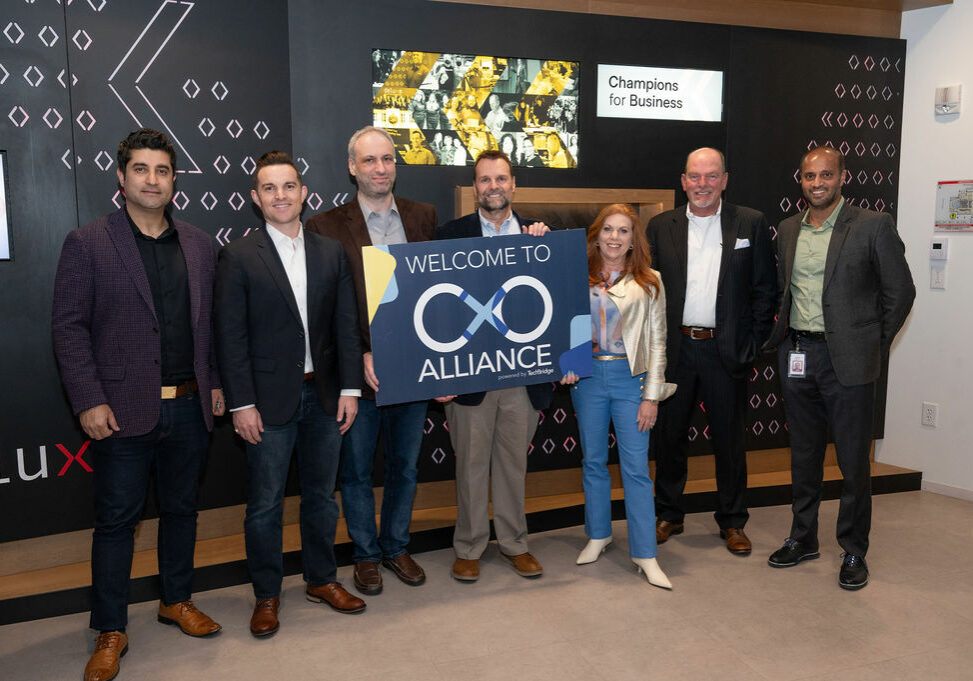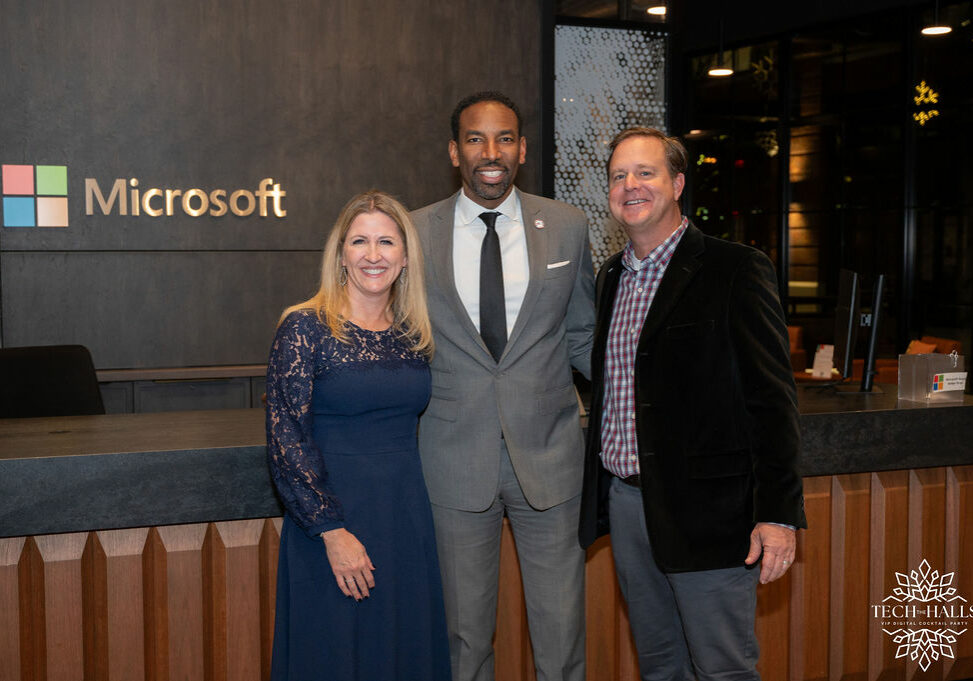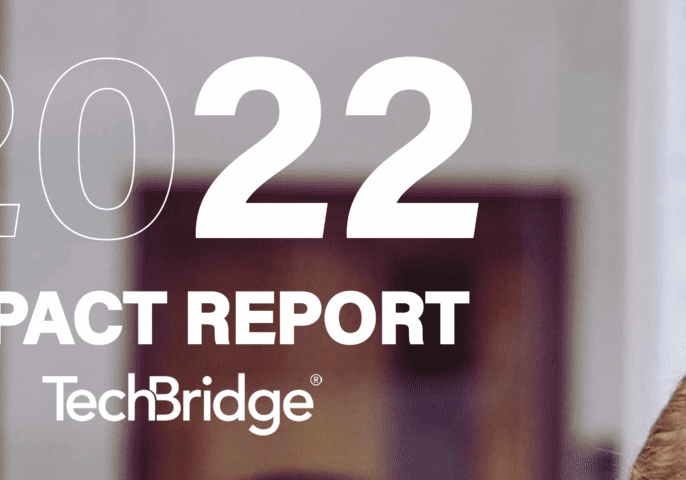Array
Interview with Samantha Sanchez
TechBridge is excited to host our inaugural National Social Justice Summit on . We invite social justice advocates, corporate social responsibility staff, and pro bono stakeholders to this one-day event to collaborate on their organizations’ social justice efforts through a lens of how technology and data can empower their work. We are thrilled to introduce Samantha Sanchez (she/her), Director, Social Justice pillar at TechBridge, as our emcee. Get to know her and the summit in this post.
How did you first become aware of the need for social justice?
Growing up in small-town Alabama, racism towards BIPOC populations was all around me — but I didn’t see it! My family built this bubble around me. My grandfather was
a third-generation Hispanic whose first language was Spanish. Men in my family served in the military, which broadened their respect for people who did not look like them. And my mother’s union work meant I spent time with the children of other union members, who were mostly Black. I inherited respect for and friendships with people who were different from me. This perspective created a bubble of tolerance as well as naïveté — I didn’t realize that non-white and non-cisgender persons were treated negatively. I can’t say when that bubble burst exactly, but when it did it fueled me to want the world to feel like I do — that all humans are inherently equal and all resources should be distributed equitably.
Why do you focus specifically on justice technology?
My health is what led me to focus on justice technology. I grew up as a relatively healthy person until age 31, when my health radically declined. I was misdiagnosed with Type II diabetes when in reality, I had adult onset Type I diabetes. My misdiagnosis kept insurance from paying for a CGM (continuous glucose monitor) — a technology that literally keeps me from dying. For the correct diagnosis I had to advocate for more testing despite insurance objections, which finally led to my correct diagnosis and the life-saving technology I use daily. Technology is now a part of me (literally, it’s in my blood — my husband says I’m bionic). If it can do that for me, it can grow the impact of the nonprofits TechBridge supports and help transform the lives of countless vulnerable people.
After a stellar career in civil legal aid, why did you decide to get involved with TechBridge?
I became familiar with TechBridge and its work during my health crisis. As I began using my own health devices, I fell in love with technology and the data it can produce to changes lives. TechBridge believes in technology like I do and our work amplifies nonprofits’ impact. I feel like I’m helping thousands of vulnerable people, and that’s not work — that’s a life’s calling.
Why is now the time to kickstart TechBridge’s first National Social Justice Summit? What made you say yes to emceeing?
Now is the time to kickstart TechBridge’s first National Social Justice Summit because -19 proved that technology can be a bridge to serve vulnerable people. This pandemic forced the world to find ways to deliver services through the safest method, and technology was often the answer. Data importance became so clear as we used it to track COVID-19’s impact on life-and-death matters. As the crisis evolves, we can use what we’ve learned to improve our work. TechBridge is here to do that for our fellow nonprofits — we’ll teach them how technology can improve their services. To the corporate world, we’ll explain how nonprofits need their help to better serve our neighbors in need. I said
yes
to emceeing this event because I passionately believe we must use the lessons and data from COVID-19 to advance our services to our fellow humans well beyond the pandemic.
How do you see the role of TechBridge’s National Social Justice Summit fitting into the wider social justice movement in the United States (and around the world)?
I often say social justice work is as big as the ocean because it encompasses so much. In social justice, collecting data is essential to prove the need is out there and validate our work’s impact. TechBridge’s National Social Justice Summit will inspire and inform any social justice nonprofit on why and how to frame their organization’s data — and empower them with the right technology to do so. That data, when used collectively, has the power to enhance every social justice movement.
As the emcee, how do you think the summit will affect attendees, either personally or professionally?
Professionally, I hope it will enable attendees to strategize how they can improve their service delivery to their target population, consider what data they need to collect to inform their efforts, and seek out partners with whom they can collaborate to amplify their work. Personally, I hope the summit will inspire attendees to examine if they can be doing their work more efficiently and effectively. That would re-energize me because it means I could work smarter, not harder, to serve people in need. Trust me; people in social justice are already working hard.
Where do you see the social justice movement going post-? How has the pandemic changed the way we take action?
(and even preceding years) acted as a catalyst for social justice. In America, we’ve seen a growing push for equality and rejected the notion that the status quo is good enough. Data has been a huge part of this in two ways: first, when data indicates discrimination exists and, second, when data is purposefully absent to hide discrimination. That is fuel to the social justice effort. The majority of Americans are demanding demonstrable proof of equality and equity, and anything less is unacceptable. The pandemic could have thwarted social justice efforts, but the fact that it didn’t proves that a) social justice workers will not go away until they achieve their goals and b) social justice advocates are malleable, proving the adage,
Where there’s a will, there’s a way.
Being a social justice advocate can come with ups and downs; what keeps you going during the downs?
Don’t laugh, but my childhood hero Rainbow Brite comes to mind. In her short-lived show she had to fight to bring color and happiness to the world against the goofy villains. I draw on her optimism when the fight for social justice sees major setbacks and recall Dr. Martin Luther King’s quote,
We shall overcome because the arc of the moral universe is long, but it bends toward justice.
Do you have a favorite social justice song/anthem?
Embarrassingly, yes. ’80s legend Pat Benatar’s Invincible is a banger, and its lines,
This shattered dream you cannot justify / We’re gonna scream until we’re satisfied,
remind me of the current fight for social justice.
A really close second song is Love Is the Answer by Aloe Blacc. I feel that anger, fear, and hate often drive social inequality. Maya Angelou said it well when she said,
Hate, it has caused a lot of problems in the world, but has not solved one yet.
Love is the antithesis of hate. When we love every other human, we’ll naturally lift them up to stand beside us.




